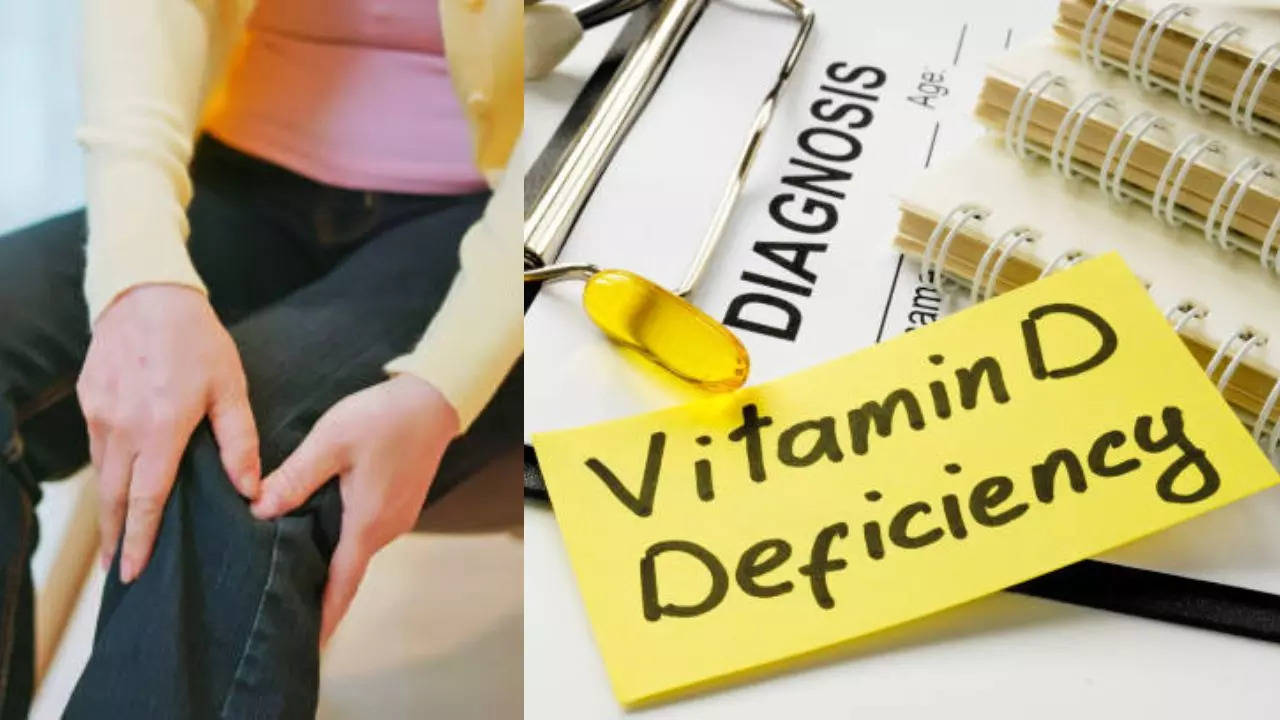Contents
Important signs to know if you have Vitamin D deficiency in winter, and how you can overcome itHere are the most common signs and symptoms that may indicate vitamin D deficiency.getting sick frequentlysevere back painhair fallweight gaingum diseasesurinary tract infectionWays to Treat Vitamin D Deficiency
-
news
-
Health
Important signs to know if you have Vitamin D deficiency in winter, and how you can overcome it
Signs and symptoms of vitamin D deficiency: Vitamin D provides many essential benefits for your bones, muscles, nerves, and immune system. However, in the winter months, low vitamin D can cause symptoms such as fatigue, frequent illness or broken bones, hair loss, UTIs, and even muscle and bone pain. Read on to know if you too have these symptoms.

If you are constantly falling sick in winter then Vitamin D deficiency can be blamed for it.
Signs and Symptoms of Vitamin D Deficiency: Vitamin D is one of the most important nutrients that helps in the growth and development of bones and teeth. It also provides better resistance against certain diseases and regulates your nervous and musculoskeletal systems along with increasing your immunity levels. However, experts say you may be deficient in this essential component in winter, which can lead to physical and mental health concerns.
Here are the most common signs and symptoms that may indicate vitamin D deficiency.
getting sick frequently
If you are constantly falling sick in winter, then Vitamin D deficiency can be held responsible for it. According to studies, there is an association between higher severity of disease and lower levels of vitamin D in people in ICU.
severe back pain
Although you may ignore back pain caused by poor sleeping posture, losing muscle strength can increase the stress on your back and neck muscles, causing significant stress.
According to doctors, pain, especially in the lower back, is a common complaint in people with vitamin D deficiency. Experts say it may be helpful to screen for vitamin D deficiency in people with low back pain, as treatments such as vitamin D supplements may reduce pain-related symptoms.
hair fall
Vitamin D plays an important role regulate hair cycleWhich also includes regeneration of new hair follicles. And because of the role vitamin D plays in hair growth, experts say it’s also possible that a deficiency in this nutrient could slow hair growth.
Studies also say that people who have low vitamin D levels may have alopecia, which is an autoimmune disorder that causes hair loss.
weight gain
Whereas winter is associated with weight gainPeople with obesity are 35 percent more likely to have vitamin D deficiency than people without obesity. Studies show that they are 24 percent more likely to experience this deficiency than those considered overweight.
According to research, the accumulation of vitamin D in adipose tissue explains why obese people have low levels of vitamin D in their blood. Fat cells retain vitamins and do not release them into the blood.
gum diseases
Vitamin D is also essential for healthy gums, as it helps calcium absorptionLow levels of vitamin D are linked to an increased risk of periodontitis – possibly due to its connection to the immune system.
According to doctors, vitamin D reduces inflammation and mineral impact on the tissues around your teeth.
urinary tract infection
The winter months see a higher number of cases of urinary tract infection or UTI, especially among women. Experts say vitamin D is essential in preventing this infection by helping your body produce natural antibiotics. And hence, deficiency of this vitamin can be a major risk factor for UTI.
UTIs are bacterial infections that affect any part of the urinary system – including the bladder, kidneys, ureters, and urethra.
Ways to Treat Vitamin D Deficiency
According to doctors, it is important to replenish your vitamin D levels for balanced functioning of the body, especially in winters. While you can consider eating more vitamin D-rich foods and getting more sunlight, your doctor will likely also recommend taking vitamin D supplements.
Vitamin D comes in two forms: D2 and D3. While D2 comes from plants, D3 is available through animals. Doctors say your body absorbs D3 more easily than D2.
Get the latest news live on Times Now with breaking news and top headlines from around the world.


